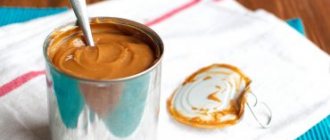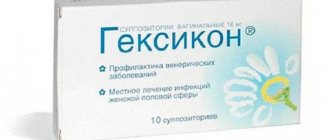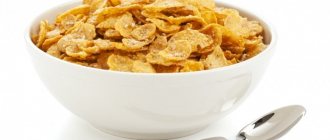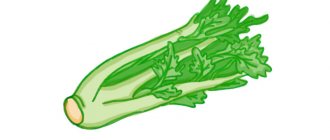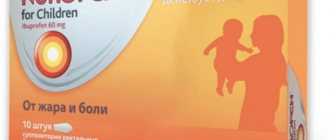A little about the drink
Coffee is perhaps one of the most popular drinks. It is produced from coffee beans. Now there are different types of this drink. For example, natural coffee, which is made by grinding roasted beans and then cooking. There are also many varieties of it, and no less brewing methods. Almost every country has its own signature recipe.
Also, other popular types of coffee have recently appeared:
- soluble;
- in powder form;
- also available in granules.
Each of the above types has its admirers and lovers.
The composition of coffee and its effect on humans
What effect does coffee have on the human body? The most famous ability, which is why this drink is so popular, is its ability to invigorate a person. Many people cannot imagine their morning without a cup of coffee. Another effect it has on the human body is that it has a diuretic effect. It is also indicated for hypotensive patients and those who suffer from migraines.
Coffee also contains a sufficient amount of useful substances (amino acids, vitamins, etc.). All this makes this drink not only tasty, but also healing.
What can nursing mothers drink?
To choose and settle on some modern drink:
- natural or instant coffee with dairy products in the form of cream or milk;
- green coffee;
- Americano;
- cappuccino;
- latte, etc., you need to know their effects on the body.
- Instant coffee drink is very rich in caffeine because it is made from robusta. There are many different harmful impurities in granular and freeze-dried products. It's better not to drink it.
- Decaffeinated coffee still has caffeine, but it is a small amount. But to reduce its content, dichloromethane is added, which removes some of the caffeine. This substance has a bad effect on the bronchi and lungs. In addition, during lactation, allergies, diarrhea, and increased cholesterol may occur.
- The newfangled drink, green coffee, contains substances that promote weight loss. And such a drink with the addition of ginger is highly advertised. But during lactation you cannot lose weight due to serious hormonal changes. Moreover, the appearance of this product is quite recent. No one has studied it well. Therefore, there is no need to experiment, especially during the feeding period.
- The safest type of drink is freshly brewed coffee. But it's better to add milk there. Make a latte. Breastfeeding mothers can also have cappuccino in moderation. Grind the coffee beans. You don’t have to cook it, just pour boiling water over it. Let it brew. And with the addition of warm or hot milk, you can drink it. Preferably 1 cup every three to four days.
The effect of coffee on an infant through mother's milk
What consequences can there be for a baby if you drink coffee while breastfeeding?
- The child becomes more excitable.
- A rash may appear on the body.
- Since coffee is a diuretic, the baby may lose a lot of fluid due to the mother drinking this drink.
- When prescribing drugs that contain caffeine, an overdose is possible.
- Also, the components of the drink can affect the speed of removal of calcium and other useful substances from the body.
However, you should not take all of the above literally. Many experts believe that a nursing mother can drink coffee if the child’s body reacts to it normally. To do this, you should check the baby’s reaction with a small amount.

Side effects from drinking too much coffee
Mommy can solve the dilemma for herself by observing the baby’s condition. Give up your habit if you notice signs in your baby:
- Dehydration. The strong diuretic effect of the drink leads to the removal of a large amount of fluid from the body, along with which substances necessary for the full and proper development of the child are released.
- Allergies. After drinking coffee, monitor your baby in the first hours after drinking the drink. Check the nasal mucosa for inflammation, and see if there is a rash on the skin.
- Constipation. By removing excess fluid, coffee hardens stool, leading to constipation.
- Overexcitation of the nervous system. Excessive caffeine causes nervousness in children, they sleep poorly, and are capricious a lot.
- Incompatibility with other drugs. In the treatment of respiratory organs and cough, drugs that already contain caffeine are used. Drinking coffee can cause an overdose of the substance.
Consider the fact that medical studies have proven a decrease in the amount of iron in breast milk in mothers who often drink an invigorating drink - a fairly convincing answer to the question of whether a woman who has recently given birth can drink coffee (see also:). It is unlikely that you wish bad things for your baby, but without iron the little person’s immunity suffers, brain functions deteriorate, and the cardiovascular system suffers.
Do not forget that caffeine is a strong tonic that can cause changes in the functioning of the nervous system. For the normal development of the baby, on the contrary, he needs more rest, while excess nervousness and activity is undesirable
Research by medical specialists on the topic “Coffee and the Infant”
However, many doctors believe that this drink is harmful to consume during lactation. This is due to the fact that an adult eliminates caffeine much faster than an infant. Therefore, there is a risk of its accumulation in the body. As a result of this, the child’s nervous system is constantly too excited, but during this period it is actively forming and becoming. The baby will have normal caffeine withdrawal only by the age of one year.
In addition to irritability, a child can also acquire allergies of varying degrees due to its large accumulation in the body.
This is precisely why doctors justify why breastfeeding mothers should not drink coffee. And if it is possible not to use it during lactation, then it is better not to neglect this advice.

Recommendations for drinking coffee while breastfeeding
Breastfeeding mothers are advised to limit their caffeine intake to 300 mg per day. It's also important to note that smoking is thought to increase health risks for moms when they drink coffee drinks. Therefore, they should limit the number of cups of coffee they drink per day or, better yet, try to quit this bad habit.
A doctor or other health care professional can give advice on how to overcome caffeine addiction and quit smoking if this is a serious problem for a woman.
Recommendations for mothers who drink coffee during lactation
In order for the child to feel good if the mother still drinks this drink, and also to reduce the possible risk, some rules should be followed:
- refrain from using it immediately after the baby is born (three months), when he is adapting to the world around him and to new food;
- if it is impossible to live without coffee, then it is better to introduce it into the diet in the first half of the day so that the child is not overexcited in the evening;
- it is also necessary to drink the drink immediately after the baby is fed;
- when drinking coffee while breastfeeding, it is necessary to have a lot of liquid on the menu;
- it is also necessary to include in your diet foods that contain large quantities of calcium (since coffee promotes its rapid removal from the body);
- It is also recommended to drink it every other day, one cup, so that there is time for caffeine to be removed from the baby’s body;
- review all caffeine-containing products and limit yourself to just one.
If you adhere to the above recommendations, then it is quite possible to avoid negative manifestations. The main thing is to constantly monitor the child’s condition, especially in the first days after the first use.
Rules for drinking coffee and cocoa while breastfeeding
If refusing the drinks in question is beyond your strength, allow yourself to have them, but follow certain rules:
- The first, most important month after childbirth - not a single cup of coffee. Adaptation of a newborn’s body lasts 3 months. A product with caffeine will become an unnecessary irritant.
- The maximum amount of the stimulating element (caffeine) in breast milk accumulates by the 2nd hour after feeding. To prevent your habit from harming your baby, drink coffee when you have just breastfed him.
- It is advisable to drink no more than one cup per day, but it is better if you limit yourself to a cup every 3-4 days. Remember the baby.
- Choose the tiniest coffee cups. This way you will pamper yourself, and there will be no harm to the child.
- Drink plenty of water with coffee (a large mug of water after each cup) to prevent dehydration in your newborn.
- To reduce calcium loss, include dairy and fermented milk products in your diet. Kefir, cream, milk, cottage cheese will help replenish the loss of the most important element for the child (see also:).
- Avoid combining products containing caffeine. Chocolate is not allowed with coffee (see also:). Coffee and cocoa on the same day are not allowed.
After drinking a cup of your favorite drink, watch your baby’s reaction. If you notice that your child has an allergic rash after feeding, he is capricious for no reason, does not want to sleep, goes to the toilet with “liquid” stool - forget about coffee for a while. You can try again after 1-2 weeks - perhaps the baby has already adapted to the new conditions and can more easily tolerate the caffeine content in milk.
Which coffee is better during lactation?
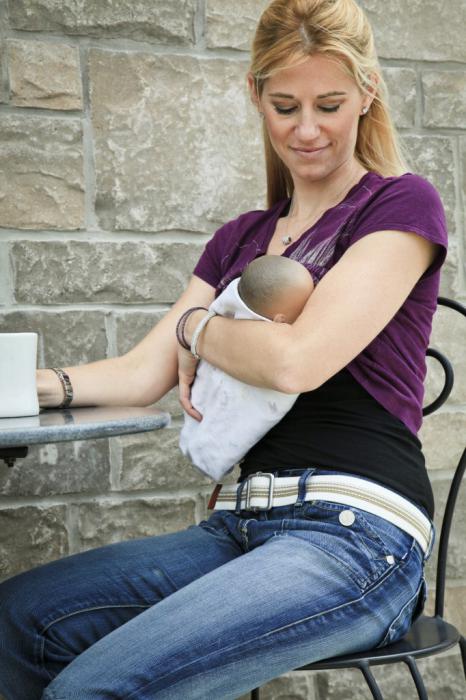
Drinking coffee while breastfeeding requires high-quality production. It is better if it is freshly ground beans - such a drink will have much less caffeine than one that uses a ready-made, purchased product. Also, if the grains are not roasted, they must be pre-roasted, and the grinding itself must be coarse. This will all help reduce the amount of caffeine in your favorite drink. Also try drinking coffee with milk, this may reduce the amount of drink you consume, but the taste will remain.
If we talk about the instant product, it contains many times more caffeine than ground. This is due to the fact that not the highest quality grains are used to prepare the instant drink (since, in principle, the buyer only sees the final product).
Thus, if a mother wants to drink a cup of coffee while breastfeeding, it is better that it be natural. This will cause less harm to the baby.
I need to say a few more words about green coffee, which has become so popular lately. Ladies use it for weight loss. Of course, after giving birth, many people want to return to their former shape, but you shouldn’t do it so quickly. First of all, you should focus on the needs of your child, and also take into account your changed body. After giving birth, some time must pass for it to return to normal. Well, after that you can use green coffee for weight loss.
Which is better - black or with milk?
Young parents often wonder if a nursing mother can drink coffee with milk. Milk can slightly soften the negative effects of caffeine on the body, so in small quantities, if the baby reacts normally, the mother can occasionally drink this drink. It is better to completely abandon the usual black coffee in the morning.
To understand whether a nursing mother can drink coffee with milk, you need to know that milk is also a product that can complicate the baby’s condition. It is better to introduce it into the diet of a nursing mother gradually. When introducing any new product into the diet of an infant, you should remember:
- you need to start with small doses, literally a few sips;
- After the first use, you should wait several days;
- At this time, carefully monitor the behavior and health of the baby;
- If rashes appear on his body or other negative reactions, the nursing woman should stop further consuming these products.
First, try introducing these products separately, and then, if there are no side effects or any negative reactions, combine them together. How to brew delicious coffee?
The answer to the question whether a nursing mother can have decaffeinated coffee is positive. After all, it is the caffeine in this drink that causes harm.
How does drinking coffee affect lactation?
In principle, reasonable consumption of this fragrant drink should not affect the amount of milk, but if there is a large amount of it in your diet at the time when you are feeding your baby , this may reduce the amount produced. Therefore, it is recommended to follow some recommendations when drinking this drink, as well as follow a diet so that the milk does not go to waste. Or even replace coffee while breastfeeding with other healthier and less dangerous drinks.
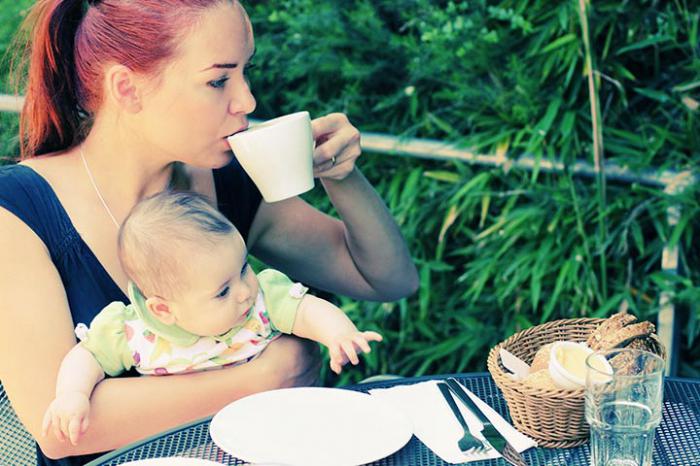
Is it allowed to drink cocoa?
If we’re already talking about caffeine-containing drinks, let’s also find out whether a nursing mother can have cocoa, and in what quantities. Caffeine, the main element that affects the condition of a newborn, is only 0.1-0.2% in cocoa, however, the drink contains theobromine, which acts in the same manner on the nervous and cardiovascular system of the baby, but it is 10 times lighter than caffeine. once. Cocoa also has a hidden threat: the drink is considered a highly allergenic product, and this is dangerous for the baby. Moms, in order not to harm your treasure, treat yourself to a drink no more than 2 times a week. Drink in the morning or before lunch, when you finish breastfeeding. Dilute with low-fat milk and do not add sugar.
There is no direct ban on drinking cocoa during breastfeeding, but it still has some effect on the baby. It’s better for mom to drink cocoa no more than twice a week, and make the drink itself not too strong
How can you replace coffee while feeding a baby?
If you still decide not to drink coffee while feeding your baby, so as not to harm him or for some other reason, but periodically you want it, then you can use substitutes. It can be:
- chicory;
- if the child is not allergic, then you can use various herbal infusions;
- Various herbal teas are also suitable;
- It will be useful to brew dill water; instead of dill, you can use anise or caraway seeds.
Such drinks can replace coffee during breastfeeding, however, as with the introduction of other products, they should be included carefully in the mother's diet.

Of the above substitutes, chicory is usually the most suitable. This natural product is very beneficial for the body, and its taste is very similar to your favorite drink.
In order to improve the taste, you can add coffee to the cup; this will not harm nursing mothers. It will be worse if you restrain your taste preferences, as this is stress for the body.
What mom needs to know
If you decide that you can afford to drink coffee while breastfeeding, remember a number of rules that will help minimize the harmful effects of this drink.
Choose the “right” coffee
It is very important to choose the right coffee. Never use instant. This is coffee dust made from rejected and over-roasted beans. There are more chemicals than coffee itself - all flavors, stabilizers and additives. Even the caffeine is synthetic. It is not recommended to drink such a drink not only for nursing mothers, but for everyone in general.
From natural varieties, exclude robusta, especially in mono variety, as it contains a lot of caffeine - up to 2500 mg per 100 g of whole beans. Take pure Arabica without any additives. It contains much less caffeine - up to 1500 mg per 100 g of coffee beans.

Choose pure Arabica beans - they have less caffeine
It’s better to drink expensive high-mountain Arabica varieties, because “mass” coffee is sprayed with growth stimulants and poisoned with chemicals to kill pests. This way you will prolong the pleasure and preserve your health and your child’s.
If you choose decaffeinated coffee (decafinato), you should remember that there is still caffeine, but in very small quantities - 97% of it is washed out using a special technology. But along with caffeine, all other beneficial substances are removed from coffee. The decaffeinated drink also increases cholesterol.
The optimal time for mom's coffee drinking
We've figured out what kind of coffee to drink, but does it matter when to drink it? Oddly enough, yes. After all, caffeine is eliminated from the body of an adult healthy person in 5–10 hours, and it reaches its maximum concentration in breast milk an hour after consuming the drink.
This means that you should not drink coffee shortly before feeding. It is better to have coffee immediately after the first or second feeding to prevent the baby from becoming overexcited in the evening. It’s good if the time gap between the baby’s milk intake is sufficient for most of the caffeine to leave the mother’s body. For example, if you skip one feeding, then you can easily afford a couple of cups - the risk of caffeine getting into breast milk will be minimal.
Notes for nursing mothers
Pay attention to a number of features that are of particular importance for nursing mothers:
- finely ground coffee is stronger, so it is better to choose medium and coarse grind;
- It is better to pour boiling water over coffee rather than boil it - this way there will be less caffeine in it;
- It is very important to consider taking medications, because some of them contain caffeine or caffeine-like substances (Citramon, Eufilin). Therefore, always ask your doctor about the effect of drugs and carefully study their composition;
- “Counting caffeine units” is necessary not only when dealing with coffee - after all, cocoa, chocolate, and Coca-Cola also contain caffeine. In strong tea, black or green, there is sometimes more of it than in a cup of light coffee. Well, everyone knows about the dangers of Coca-Cola: it is better not to drink this drink at all;
- You should absolutely not combine a cup of coffee with a chocolate bar, especially dark chocolate, which contains a high concentration of cocoa, and therefore more caffeine. It is better to space these two pleasures as far apart as possible in time.
Good things come in small packages
Employees of the European Food Safety Agency (EFSA) have determined that the safe dose of caffeine for a healthy adult is 400 mg per day. This means that if you completely give up all caffeine-containing products (chocolate, tea, cocoa, cola), you can drink about 700–750 ml of black coffee during the day without harm to the body.
It is clear that such an amount of coffee is unacceptable for a nursing mother - 1-2 cups a day are enough for her. And it’s even better if mom’s “coffee breaks” aren’t daily.

It is better for a nursing mother not to have coffee breaks every day.
Coffee and lactation
When it comes to the effect of coffee on lactation, you can breathe easy - the drink itself does not in any way affect the process of milk formation. But remember - this is a diuretic product, which means it removes fluid from the body, which is bad for lactation. Therefore, do not forget to replenish fluid loss. Try to drink more regular clean water.
Coffee and milk are made for each other
As mentioned above, coffee flushes calcium from the body. Therefore, if the child does not have cow’s milk intolerance, it will be useful to add milk to the drink, which will replenish the level of calcium in the blood and preserve your skeletal system. Well, the more milk in the cup, the less caffeine there is.
Hard cheese or ricotta are also quite good for replenishing calcium levels in the blood, and also as an excellent addition to a cup of coffee.
Do you know that coffee itself is a very low-calorie product? 100 ml of black coffee without sugar contains only 2 kcal. Various additives make it rich in calories - cream, sugar, syrups. For example, pouring two tablespoons of sugar into a cup will add approximately 50 kcal. If you pour 50 grams of medium-fat milk into unsweetened coffee, the calorie content of the drink will increase by 30 Kcal. And just two tablespoons of 35% fat cream will add as much as 120 Kcal.
Cream is a traditional addition to coffee, which is also suitable for nursing mothers. But remember about moderation - heavy cream will greatly increase the calorie content of the drink, especially if you drink it with sugar. But without fanaticism, you shouldn’t switch to skim milk either. It is not only low in calories, but also low in benefits. Take medium fat milk or 10–15% cream.
But you should not expect that milk supplements will enhance lactation - no connection has yet been found between their use and the amount of breast milk.

Add milk to coffee to reduce its harmful effects


